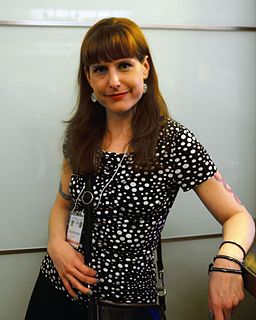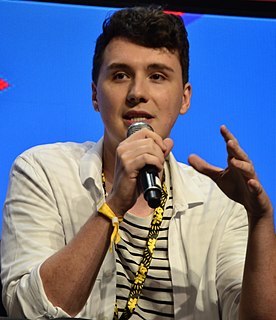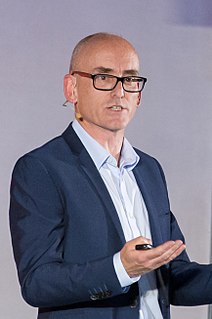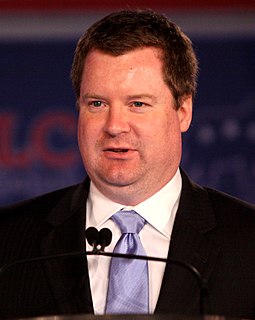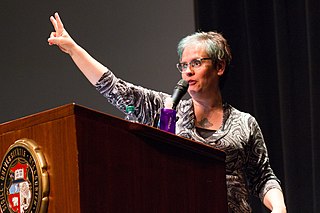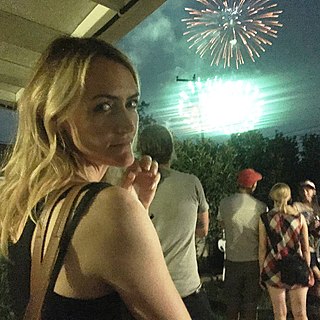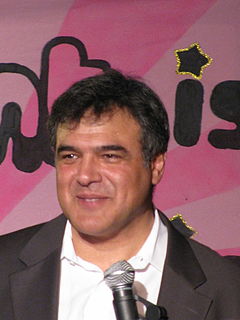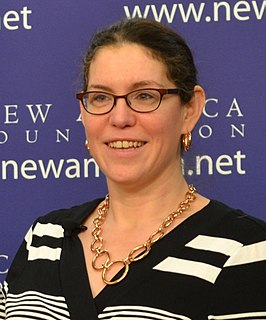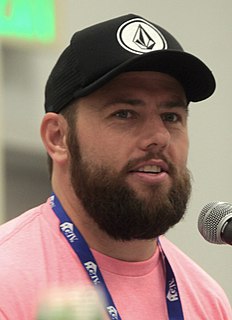A Quote by Julie Zeilinger
In terms of feminism, I would just ask young women to keep an open mind about it and try to learn about it before they write it off or believe the negative stereotypes that surround it. Feminism can help you on a personal level, it can offer you an incredible community of brilliant and impassioned people, and can change the way you see the world if you just open yourself up to it. I think that goes for all causes as well.
Quote Topics
About
Ask
Before
Believe
Brilliant
Causes
Change
Community
Feminism
Goes
Help
Impassioned
Incredible
Just
Keep
Keep An Open Mind
Learn
Level
Mind
Negative
Negative Stereotypes
Off
Offer
Open
Open Mind
People
Personal
See
Stereotypes
Surround
Terms
Think
Try
Up
Way
Well
Women
World
Would
Write
Young
Young Women
Yourself
Related Quotes
I think feminism has always been global. I think there's feminism everywhere throughout the world. I think, though, for Western feminism and for American feminism, it not so surprisingly continues to center Western feminism and American feminism. And I think the biggest hurdle American feminists have in terms of taking a more global approach is that too often when you hear American feminists talk about international feminism or women in other countries, it kind of goes along with this condescending point of view like we have to save the women of such-and-such country; we have to help them.
When I grew up, feminism wasn’t something that was really talked about. There’s a really negative stereotype about feminism in the media. That really plays badly for young women understanding the movement. Maybe people don’t want to identify themselves as feminists because of the label. But people need to understand what feminism means and educate themselves before they reject it.
There was no real strategic decision about editorial tone. It was kind of a write whatever you want to write, and we'll see how it goes. I think that we lucked out in that all of the women who started writing at Feministing.com were really funny, and I don't think that's something people are used to seeing or hearing when they read feminism. You know, you think feminism and you kind of think academic, women's studies, dry, humorless; there are all of these stereotypes that go along with what feminist thought is and what feminist writing is.
If you ask me what I believe in today, I believe in feminism. I believe that all human beings are equal. I believe that no one has the right to authority over anyone else. Feminism has to do with everything in the world, a vision of how the world can be. I have great doubts about Utopias, but I just keep on thinking there is a better way to live than the way we live now.
Something I say a lot when it comes to anti-feminist stereotypes is that they exist for a reason. The stereotypes of feminists as ugly, or man-haters, or hairy, or whatever it is - that's really strategic. That's a really smart way to keep young women away from feminism, is to kind of put out this idea that all feminists hate men, or all feminists are ugly; and that they really come from a place of fear. If feminism wasn't powerful, if feminism wasn't influential, people wouldn't spend so much time putting it down.
It's always been important to me to be very upfront with people about the fact that I do identify as a feminist because it's an opportunity to expose people to and educated them about the movement. Young women don't identify as feminist is because they don't know any feminists and don't have a comprehensive understanding of what it is, I gave them example and an opportunity to ask about it. And once they saw that I wasn't the embodiment of the negative feminist stereotype - that I was a normal teen girl just like them - I think they became more open to learning about what feminism really is.
When we think about Islamic feminism, it is not just about women's rights. It's about a more progressive and tolerant expression of Islam in the world for all people. Women's rights is one aspect of it, it's not the end-all, but I also think that the women's issue is the strongest entry point that we've got to challenging extremism. You raise a woman's issue and you get the backs of the conservatives up against the wall faster than just about any other issue in our community. It's the fastest path that we've got to making change happen.
Yes, there's something dangerous about turning people into token social activists. I was thinking about this recently with our pop-culture feminism, when feminism is such a buzzword in the media now. We're covering it in a way that we haven't before, but also in a way that's way more surface level. And while I think that there's some danger in that, I also think it's a great gateway for some people.
I had a real come-to-Jesus a couple of years ago when I started to see the direct line between feminism and everything else - feminism and climate change, feminism and poverty, feminism and hunger - and it was almost like I was born again and started walking down the street and was like, "Oh, my God, there are women everywhere! They're just everywhere you look. There's women all over the place!"
As all advocates of feminist politics know most people do not understand sexism or if they do they think it is not a problem. Masses of people think that feminism is always and only about women seeking to be equal to men. And a huge majority of these folks think feminism is anti-male. Their misunderstanding of feminist politics reflects the reality that most folks learn about feminism from patriarchal mass media.
On Girls I like being a mouthpiece for the issues I think young females face today. It’s always shocking when people question whether it’s a feminist show. How could a show about women exploring women not be? Feminism isn’t a dirty word. It’s not like we’re a deranged group who think women should take over the planet, raise our young on our own and eliminate men from the picture. Feminism is about women having all the rights that men have.
I know a few women younger than me who have careers and children, and so the burgeoning career and family happen at the same time. A few have said something like, "During dating, he was all about feminism. But now I have to ask him to help with the children, I have to ask him to do the dishes, and every time he does, it's like a favor. Where's the feminist I married?" That's theoretical feminism, not practical feminism. I don't think we're all where we need to be. I don't know if we will be in my lifetime. Life is imperfect. But interesting.












